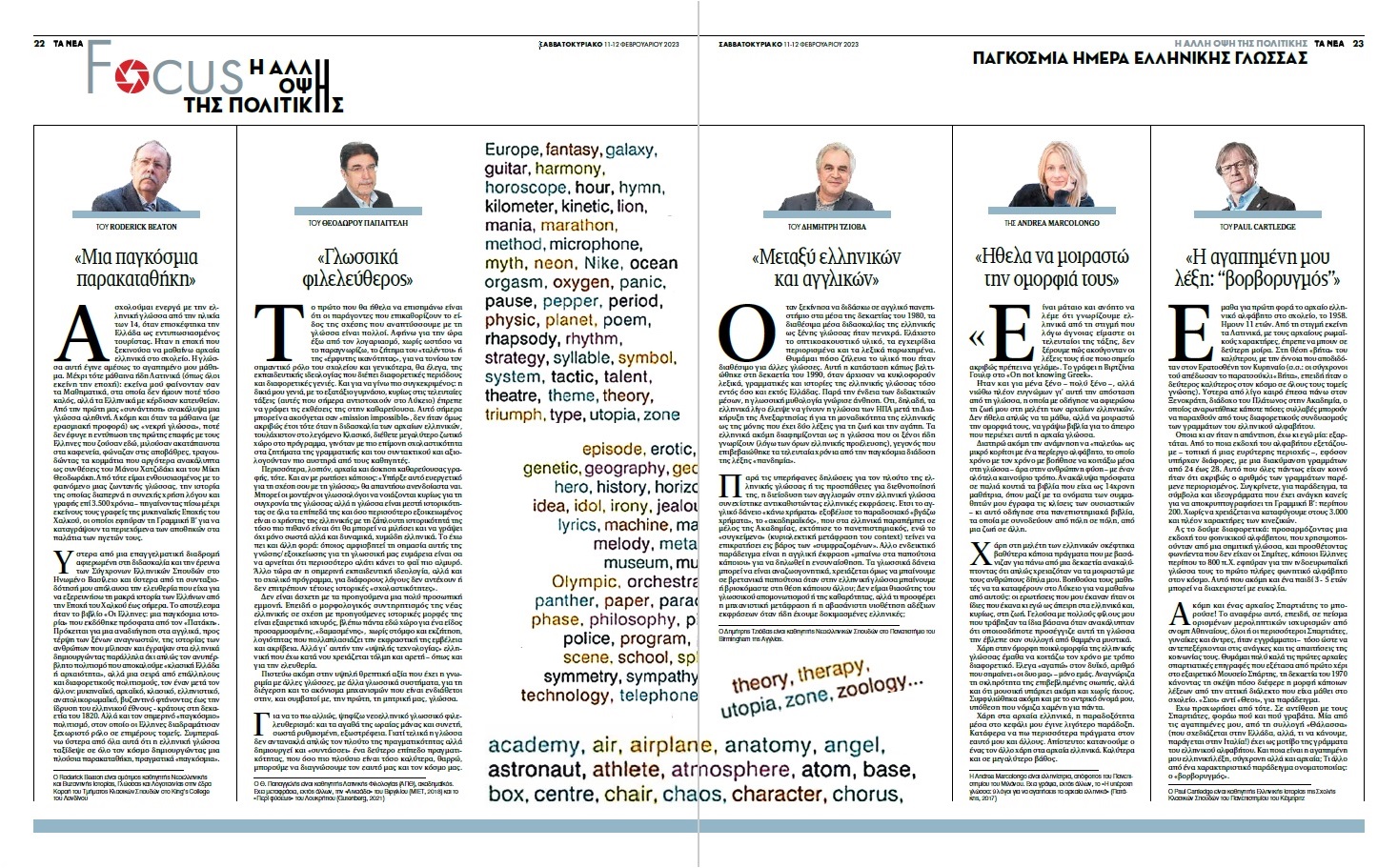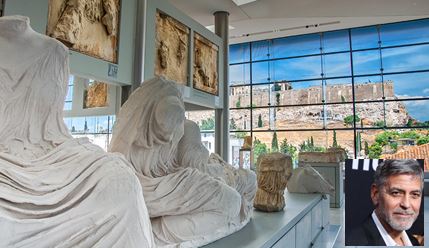"My favourite word: 'borborygmos' "[means-tummy-rumble]
I first learned the ancient Greek alphabet at school in 1958. I was 11 years old. From that moment on, Latin, with its ancient Roman characters, had to take second place. In the position of "beta", in the best sense attributed to Eratosthenes of Cyrene (ed.: contemporaries attributed to him the nickname "Beta", because he was the second best in the world in all areas of knowledge). After some time I stumbled upon Xenocrates, Plato's successor in the Academy, who once wondered how many syllables can be produced from the different combinations of letters of the Greek alphabet.
Whatever the answer, I have one: it depends. Upon which version of the alphabet we are looking at - local or over a wider region, since there were several, with a varying number of letters from 24 to 28. What they all had in common, however, was that the overall number of letters remained small. Compare, for example, the symbols and ideograms one needs to command in order to decipher Linear B: about 200. Without mentioning the more than 3,000 characters needed for basic literacy in Chinese.
Let's look at it differently: by adapting a version of the Phoenician alphabet, developed for a Semitic language, and adding vowels that the Semite-speakers did not use, some Greeks around 800 BC invented for their Indo-European language the first fully phonetic alphabet in the world. Something that even a child of 3 - 5 years can manage with ease.
Even an ancient Spartan could! I mention this because, in spite of some biased claims by snobbish Athenians, all or most Spartans, women and men, were literate - enough to cope with all the needs and demands of their society. I remember very well the first ancient Spartan inscriptions that I examined first-hand at the excellent Museum of Sparta, in the 1970s, thinking how different was the form of some (Doric) words differed from those of the Attic dialect I had learned in school. "Sioi" instead of "Gods", for example.
I've been moving on ever since. Unlike the Spartans, I wear a tie from time to time. One of my favourites, from the "Thalassa" collection (designed in Greece, but, oimoi, produced in Italy!), has as its motif letters of the Greek alphabet. And what is my favourite Greek word, both modern and ancient? What else than a typical example of onomatopoeia: the "booborygmos".
Paul Cartledge is Professor of Greek History at the School of Classics, University of Cambridge and Vice-Chair of BCRPM
Paul's words were published in Ta Nea.







Comments powered by CComment